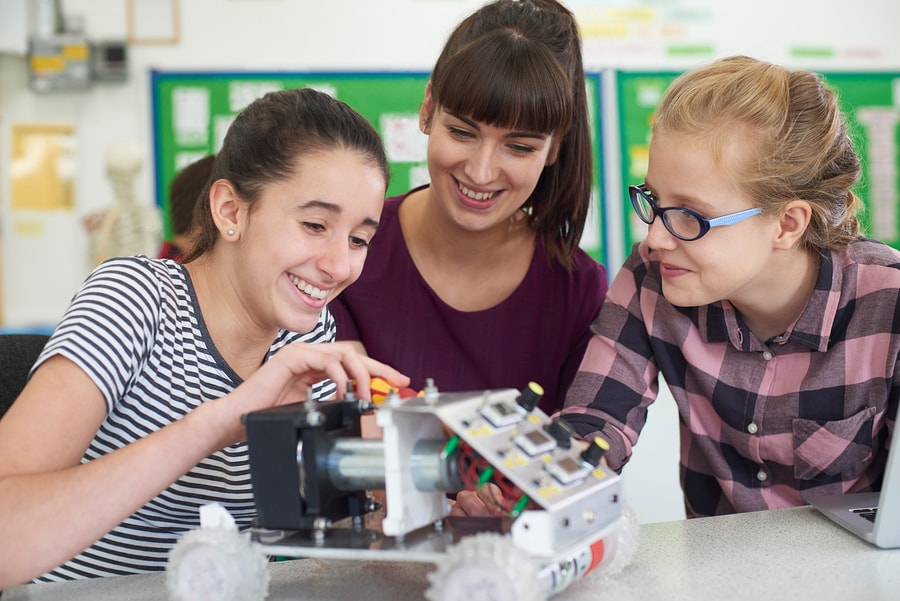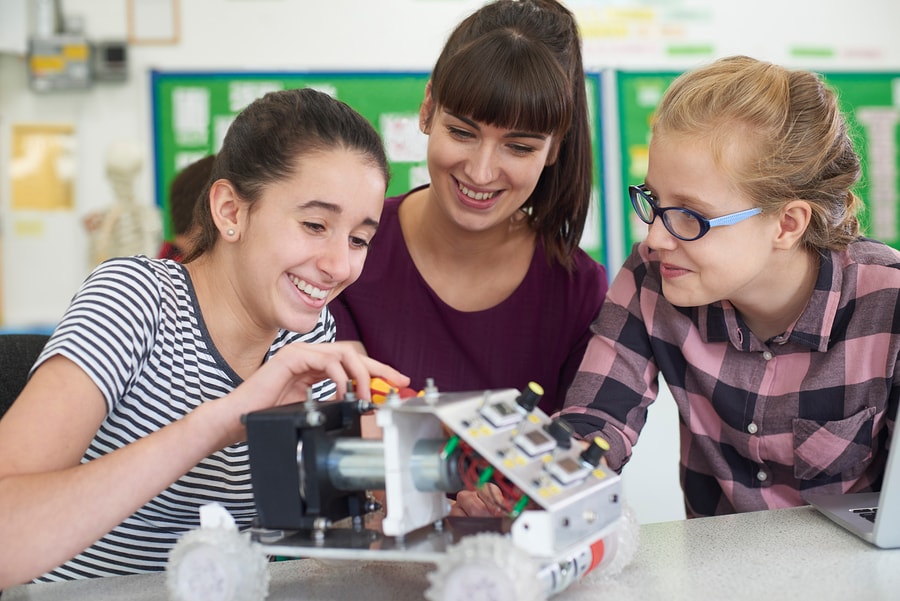With these courses, students learn a series of topics related to the ethics of the use and development of AI applications. For example, the algorithmic biases that discriminate individuals by gender or race.
Image: Bigstock.
Since October 2018, a group of US public middle schools started teaching Artificial Intelligence (AI) courses in the fields of Ethics, Robotics, Computer Science, and Music. Also, in India, the study of AI will be introduced in the curriculum of more than 20,000 middle schools. In both cases, the objective is the same: to prepare students at an early age to face the challenges imposed by this technological evolution.
Montour School District, located in the US state of Pennsylvania, provides public education to nearly three thousand students. In it, researchers from MIT together with educational authorities launched AI courses in middle schools. They chose this educational level since they evaluated that on average children receive their first smartphone at ten years old, and at twelve they open their first social media account.
The report published by Getting Smart points out that during these courses students learn a series of topics related to the ethics of the use and development of AI applications. For example, algorithmic biases that discriminate individuals by gender and race or the so-called “Trolley problem” –situations where the autonomous car’s software is forced during a potential crash scenario to choose between various courses of action, all of which may cause harm.
Furthermore, students choose elective subjects on Robotics, Computer Science or Music. In the latter, students learn to create musical themes with the help of AI systems.
In these educational programs, the teaching role is decisive and therefore training in these technologies is provided; teachers are trained in different AI platforms and are encouraged to use smart assistants.
This initiative is not an isolated effort. In India, the Central Board of Secondary Education (CBSE) plans to introduce AI subjects into the curriculum of more than 20,000 middle schools with the aim of making students familiar with this technology and continuing to improve their skills and technical knowledge.
It seems that the further we move technology away from youth, the more we disarm them in the face of future challenges. Instead of snatching smartphones from classrooms, restricting the use of video games, and assuming that automation will happen in the distant future, school authorities should modernize the educational experience with subjects appropriate to technological transformations.
This article from Observatory of the Institute for the Future of Education may be shared under the terms of the license CC BY-NC-SA 4.0 
)
)






)
Paulette Delgado
Paulette Delgado
Paulette Delgado